|
"Remember that the Christian life is one of action; not of speech and daydreams. Let there be few words and many deeds, and let them be done well." – St. Vincent Pallotti Blessings to all as we are about to celebrate the feast of St. Vincent Pallotti on January 22nd! Some may ask, “Who is that?” I am glad that you asked. St. Vincent Pallotti and his charism are the reason why the Catholic Apostolate Center exists. He was a priest of the Diocese of Rome in the first half of the nineteenth century. His ministry spanned the poor to popes. It did not matter what a person was, but who the person was, an image and likeness of God, the Infinite Love. He saw all people as gifted by God with talents that were meant to be shared. On January 9, 1835, St. Vincent Pallotti was inspired to found the Union of Catholic Apostolate, a collaborative association of lay people, religious, and clergy, who were called to assist in the missionary efforts of the Church through all apostolic methods and means, “revive, maintain, and increase the faith” of Catholics, and be an “institution of universal charity”. Over time, a community of priests and brothers and communities of sisters developed as well. Members of the Union of Catholic Apostolate are now in over 50 countries around the world. The Catholic Apostolate Center, a ministry of Pallotti’s community of priests and brothers, is a 21st century expression of his charism that works to revive faith, rekindle charity, and form apostles. Looking the other way when others were in need was not possible for Pallotti and his life calls all, particularly Catholics, to be more than simply passive participants in the Faith. Instead, we are called to be apostles, sent by Jesus Christ out into the world to spread the Gospel and charitably bring healing and consolation in the midst of brokenness and suffering. In many ways, it is fitting that most years (although, this year on January 27th) those who March for Life in the streets of Washington, D.C. are doing so on his feast day. The marchers not only give witness, but also voice to those who are voiceless, unborn children. The most vulnerable and in need were closest to the heart of St. Vincent Pallotti as he and his companions went into the streets of Rome to care for them day after day and night after night. On January 22, 1850, he died from a respiratory illness because he had braved the elements to continue his work after giving away his cloak to a poor elderly woman on a cold, rainy night. St. Vincent Pallotti understood well what Pope Francis teaches us today: “Jesus, the evangelizer par excellence and the Gospel in person, identifies especially with the little ones (cf. Mt 25:40). This reminds us Christians that we are called to care for the vulnerable of the earth” (Evangelii Gaudium, n. 209) We invite you to learn more about St. Vincent by downloading our Pallotti App, visiting our new Pallotti Portal, viewing this new video, or listening to this new podcast. May the Charity of Christ urge us on!
0 Comments
“Deeds done well.” Note the emphasis that St. Vincent Pallotti places on how things are done. Too often there are many deeds that are not done well. They are done in a half-hearted, almost mechanical way. This is a “maintenance” mentality, as noted by the 2012 Synod on the New Evangelization. A missionary mode of operating, as emphasized by the Synod and by Pope Francis in Evangelii Gaudium, was at the core of the actions of St. Vincent Pallotti. Today is Pallotti’s feast day. As founder of the Union of Catholic Apostolate, an association of lay people, consecrated persons, and clergy, a part of which is the Society of the Catholic Apostolate (Pallottine Fathers and Brothers), he understood the need for all Christians to be people of action, apostles of Christ.
Today in Washington, D.C., thousands and thousands of people are taking to the streets in a show of action for life. One of the things that characterizes this effort is the joy that those who participate show in witness to life. Sometimes people of action, including Catholics, do not show joy in their actions. Joyful action will draw others, invite others, unite them, and send them forth to collaborate for the good of the Church and for the world. As we celebrate today the feast of the Patron of the Catholic Apostolate Center, St. Vincent Pallotti, I invite you to reflect on the the words of St. John Paul II and to do many deeds to make them a reality: “Continue to multiply your efforts so that what was prophetically announced by Vincent Pallotti, and the Second Vatican Council authoritatively confirmed, may become a happy reality, that all Christians are authentic apostles of Christ in the Church and in the world” (Homily of June 22, 1986). St. Vincent Pallotti, pray for us! May the Charity of Christ urge us on! Fr. Frank Donio S.A.C. is the Director of the Catholic Apostolate Center 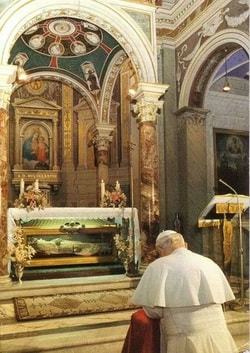 "John XXIII and John Paul II cooperated with the Holy Spirit in renewing and updating the Church in keeping with her pristine features, those features which the saints have given her throughout the centuries." - Pope Francis This past Sunday was a unique and amazing day of four popes, the two pope saints, John XXIII and John Paul II and the two living popes, Pope Francis and Pope Emeritus Benedict! The renewal and updating of the Church called for by the Second Vatican Council, initiated by St. John XXIII, and central to the work of the New Evangelization as articulated by St. John Paul II continued through the efforts of Pope Emeritus Benedict XVI, especially the Synod on the New Evangelization and finding even greater momentum through the witness of Pope Francis. Among them all, along with Paul VI, the Council, and Church leadership in general has called all of the baptized to engage in greater co-responsibility for the life of the Church and for the work of evangelization. Various pundits, both in Church and secular media, are quick to give their sometimes very simplistic analysis of why the two popes were canonized together and the message that Pope Francis is trying to convey. If there is any "message", I believe that it is a continued or re-commitment to the on-going renewal of the Church in trustful cooperation with the Holy Spirit and in prayerful communion with the saints. St. John XXIII and St. John Paul II were both visionary leaders who put forward programmatic plans for not simply renew of the Church as an institution, but renewal of all the baptized in faith and holiness who are called to go forth to the world and renew it as well. In 1959, St. John XXIII said, "Profession of the Christian faith is not intelligible without strong, lively apostolic fervor" (Princeps Pastorum, 32). The Second Vatican Council confirmed this understanding in Lumen Gentium through its teachings about the Universal Call to Holiness and the role of all the baptized in the mission of Christ. St. John Paul II was one of the drafters of the Decree on the Apostolate of the Laity (Apostolicam Actuositatem) along with the then Rector General of the Society of the Catholic Apostolate, Fr. Wilhelm Möhler. St. John Paul taught in his apostolic exhortation Christifedles Laici, which followed the Synod on the Laity in 1987, that The Second Vatican Council has reminded us of the mystery of this power and of the fact that the mission of Christ - Priest, Prophet-Teacher, King - continues in the Church. Everyone, the whole People of God, shares in this threefold mission (14). Just after the close of the first session of the Council, St. John XXIII canonized the Patron of the Catholic Apostolate Center, St. Vincent Pallotti, calling him "an innovator of new ways whereby people could come to know the love of God" (Cf. L'Osservatore Romano, January 23, 2013). Pallotti understood well the call of all to be apostles or what Pope Francis calls in Evangelii Gaudium, "missionary disciples" (120). The Center continues Pallotti's mission in the way that St. John Paul II described it to members of the Union of Catholic Apostolate when he said: Continue to multiply your efforts so that what Vincent Pallotti prophetically announced, and the Second Vatican Council authoritatively confirmed, may become a happy reality, and all Christians become authentic apostles of Christ in the Church and in the world! (Homily at San Salvatore in Onda, June 22, 1986). Mary, Queen of Apostles, pray for us! St. Vincent Pallotti, pray for us! St. John XXIII, pray for us! St. John Paul II, pray for us! Fr. Frank Donio, S.A.C., is the Director of the Catholic Apostolate Center "Remember that the Christian life is one of action; not of speech and daydreams. Let there be few words and many deeds, and let them be done well." – St. Vincent Pallotti
Blessings to all on the feast of St. Vincent Pallotti! Some may ask, “Who is that?” I am glad that you asked. St. Vincent Pallotti and his charism are the reason why the Catholic Apostolate Center exists. He was a priest of the Diocese of Rome in the first half of the nineteenth century. His ministry spanned the poor to popes. It did not matter what a person was, but who the person was, an image and likeness of God, the Infinite Love. He saw all people as gifted by God with talents that were meant to be shared. On January 9, 1835, St. Vincent Pallotti was inspired to found the Union of Catholic Apostolate, a collaborative association of lay people, religious, and clergy, who were called to assist in the missionary efforts of the Church through all apostolic methods and means, “revive, maintain, and increase the faith” of Catholics, and be an “institution of universal charity”. Over time, a community of priests and brothers and communities of sisters developed as well. Members of the Union of Catholic Apostolate are now in over 50 countries around the world. The Catholic Apostolate Center, a ministry of Pallotti’s community of priests and brothers, is a 21st century expression of his charism that works to revive faith, rekindle charity, and form apostles. Looking the other way when others were in need was not possible for Pallotti and his life calls all, particularly Catholics, to be more than simply passive participants in the Faith. Instead, we are called to be apostles, sent by Jesus Christ out into the world to spread the Gospel and charitably bring healing and consolation in the midst of brokenness and suffering. In many ways, it is fitting that those who March for Life today in the streets of Washington, D.C. are doing so on his feast day. The marchers not only give witness, but also voice to those who are voiceless, unborn children. The most vulnerable and in need were closest to the heart of St. Vincent Pallotti as he and his companions went into the streets of Rome to care for them day after day and night after night. On January 22, 1850, he died from a respiratory illness because he had braved the elements to continue his work after giving away his cloak to a poor elderly woman on a cold, rainy night. St. Vincent Pallotti understood well what Pope Francis teaches us today: “Jesus, the evangelizer par excellence and the Gospel in person, identifies especially with the little ones (cf. Mt 25:40). This reminds us Christians that we are called to care for the vulnerable of the earth” (Evangelii Gaudium, n. 209) We invite you to learn more about St. Vincent by downloading our Pallotti App or visiting our new Pallotti Portal. May the Charity of Christ urge us on! Fr. Frank Donio, S.A.C. is the Director of the Catholic Apostolate Center "Commitment to ecumenism responds to the prayer of the Lord Jesus that 'they may all be one' (Jn 17:21). The credibility of the Christian message would be much greater if Christians could overcome their divisions and the Church could realize 'the fullness of catholicity proper to her in those of her children who, though joined to her by baptism, are yet separated from full communion with her' We must never forget that we are pilgrims journeying alongside one another. This means that we must have sincere trust in our fellow pilgrims, putting aside all suspicion or mistrust, and turn our gaze to what we are all seeking: the radiant peace of God’s face” (Evangelii Gaudium, n. 244).
Over the nine years that I was at St. Jude Shrine in Baltimore, Maryland, I had the opportunity to participate in and then to host an annual prayer service for Christian Unity. It became a very popular celebration and leaders from various Christian communities participated, including the Archbishop of Baltimore. To me, though, the most important people who participated were the people who went week to week to their faith communities in various parts of Baltimore, but never had the opportunity to pray together with Christians from other communities. Prayer is powerful and to underestimate its power to unite us leaves us lacking in the virtue of hope. Such hope is not naïve, but is based on firm trust in the work of the Holy Spirit. The annual Week of Prayer for Christian Unity will begin on Saturday, January 18th and conclude on the Feast of the Conversion of St. Paul on January 25th. Year after year, Christians are invited to pray that “they may be one.” St. Vincent Pallotti, patron of the Catholic Apostolate Center and founder of the Union of Catholic Apostolate, worked diligently for unity in the Church, using the liturgical Octave of the Epiphany in Rome as a means to unite in prayer members of the Eastern and Western traditions of the Catholic community who were rather disconnected from one another. This celebration was held in the city of Rome from 1836 until 1968. His feast day, on January 22nd, is in the middle of the Week of Prayer for Christian Unity. Collaboration of all Christians can lead us toward Pallotti’s vision, hope, and prayer that one day we may be “one fold, under one Shepherd, Jesus Christ” (Cf., Jn 10:16) Since our mission as the Catholic Apostolate Center is derived from the charism of St. Vincent Pallotti, who fervently prayed for such a day, we invite you to pray not only individually, but draw other Christians together in prayer. Prayer, though, is not the only thing that we can do. We can learn more about what the Roman Catholic Church teaches about the needed work for building unity among Christians. We invite you to explore the many resources that we have on our new Christian Unity page. May we also take up the call of the Catholic Church spanning from the time of the Second Vatican Council to the appeal of Pope Francis today: "The search for unity among Christians is an urgent task... We are well aware that unity is primarily a gift from God for which we must pray without ceasing, but we all have the task of preparing the conditions, cultivating the ground of our hearts, so that this great grace may be received" (Address to the Delegation of the Ecumenical Patriarchate of Constantinople, June 28, 2013). Our new Christian Unity resources can be found here. Fr. Frank Donio, S.A.C. is the Director of the Catholic Apostolate Center We are living in a moment of grace. Blessed John Paul II of happy memory continually spoke of the need for reviving and renewing the faith. Public life today gives too little evidence of religious convictions or moral principles derived therefrom. They find it difficult to “listen to others speaking of God” (Lineamenta on New Evangelization, 19). Soren Kierkegaard rightly pointed out the present condition of Christendom: “Christendom has done away with Christianity, without being quite aware of it. The consequence is that, if anything is to be done, one must try again to introduce Christianity into Christendom” (Kierkegaard 1941, 39).
The time of St. Vincent Pallotti witnessed revolutions, upheavals, and their consequences like declining of faith and love. In this dangerous and difficult situation, Vincent Pallotti felt the need to do something substantial to restore the image of God in every human person. Pallotti realized that the reparation is entrusted with everyone, using every means available, and aimed at reviving of faith and rekindling of charity. As a result, the Union of the Catholic Apostolate was born in response to the actual needs of the Church and the world. Through the Union of the Catholic Apostolate the laity could participate in the mission and play their role in defending the faith. When faced with similar situations, Pope John Paul II also adopted a method similar to that of Pallotti that is the revival of the faith of the Catholic, and termed it as ‘New Evangelization.’ During his apostolic visit to Poland in 1979, while delivering a homily at Sanctuary of the Holy Cross, Pope used the term, ‘New Evangelization,’ for the first time in history. Then, in 1983, he explained the expression more clearly in the Bishop’s Conference of Latin America. He was not thinking of merely a re-evangelization of the continent, but of a sharing of the faith which was new in its vigor, new in its methods and new in its expressions. The seventeenth General Assembly of the Society of the Catholic Apostolate took the first step to respond to the call of the Church for New Evangelization. The Assembly declared: “To all a new missionary response appeared to be urgent; a New Evangelization which, starting from a common openness to the Spirit, would lead to internal renewal and succeed in giving voice to the hopes of people as active and decisive subjects of their own faith and of their Christian maturity” (In the Union to Evangelize 1992, 15). Declaring thus the Assembly re-emphasized the role of Pallottines in the new missionary endeavor of the Church. For Pallotti, the project of New Evangelization was not just another theme in his life, but it was the centre of God’s will for his life and the goal of his foundations; the real solution for the crisis of his time; the purpose for which all efforts spiritual and temporal were to be directed; the fundamental project that would unite the clergy, religious and laity; and the instrument through which the hope for one flock and one shepherd would be realized. Having seen the impetus of New Evangelization in the charism of St. Vincent Pallotti, we are now in a position to spell out some expressions that Pallottines are familiar with in order to response to the call for a New Evangelization. Catholic Apostolate: Pallotti was convinced of the apostolic character of the entire people of God. Apostolate, therefore, is not restricted to the priestly class alone. Every idea and every suggestion put forward by Pallotti regarding the Catholic Apostolate is reflected in the Decrees of Second Vatican Council that came out 115 years after his death. Instrumentum Laboris on New Evangelization (n. 106) reiterates the participation of various persons (priests, parents, religious and catechists) in the evangelization, each exercising a proper task and responsibility. Pallotti asks everyone: “Can you pray for the salvation of men? Then pray. Can you give good example to others? Then show good example. Can you exhort your neighbor to do good? Then exhort him. Can you contribute something to help the missionary activities? This is how you become an apostle” (OO CC IV, 326). Thus you can be an agent of New Evangelization becoming an apostle yourself. The Cenacle Model: The Pallottine icon of the cenacle is quite capable of responding to the call of the Church today. The little Church gathered in the cenacle is a symbol of an ecclesial vision of communion, where all the faithful feel co-responsible for the mission of the Church and participate in it with equal dignity and right. In this model of the Church, there is no claim for superiority, but all are equal among equals (Gen. Stat. 29a, 31). Today, the churches are caught up in a situation of conflict and struggle within. There are many unevangelical values dominating our churches, for example, power politics, financial ambiguity, growing distance from the poor, excessive institutionalization, and eagerness for fame and recognition. In this situation, the cenacle model invites every Catholic to become an authentic apostle of Jesus for the transmission of Christian Faith. The presence and action of the Holy Spirit will be the hall mark of this project. Love of Christ Urges Us: St. Vincent Pallotti suggested the words of St. Paul as a motto for apostolic work: “The love of Christ urges us” (2 Cor 5:14). In order to be urged and motivated by the love of Christ, we need to be rooted in his love. New Evangelization is not possible without the motivation by the Spirit of Christ. Pope Francis states, in Lumen Fidei, n. 18, that it is the love of Christ that urges the Christians to live their lives in this world with ever greater commitment and intensity. According to Pallotti the love of God and Jesus should impel us to do everything and this must be the soul of any apostolic work. Pallotti emphasized this motto because of the emerging tendency among evangelists to seek prestige, honour and reward here on earth. This motto should lead us to the realization that we are only instruments in the hand of God. Thus, we have a paradigm shift in our approach to Evangelization. As Pallottines we are the ‘chosen’ people for this ministry and our charism impels us do it efficiently. It is the right time for us to respond to the situations according to the charism of our founder. Let the charism of St. Vincent Pallotti be spelled out through the apostolic activities we undertake to the revival of faith and rekindling of charity in the Church and in the world. May our founder St .Vincent Pallotti help us in our response to the call of the Project of New Evangelization. Bro. Shine Augustine, S.A.C. is a member of the Epiphany Province of the Society of the Catholic Apostolate (Pallottine Fathers and Brothers) in Nagpur, India, and is in his fourth year of Theology studies in Prabodhana, Mysore. Ever consider yourself an apostle? Last year, the 42 year-old Andrew Lloyd Webber musical, Jesus Christ Superstar, returned to Broadway for another run. The Apostles reflectively sing during the Last Supper, “Always hoped that I'd be an apostle, knew that I would make it if I tried,” as if they really knew what they were getting into when they agreed to Jesus saying “Follow me!” Of course, they didn’t. It would be like you saying, “Always hoped I’d be a volunteer, knew that I would make it if I tried.”
At some point someone, even if that Someone was speaking within, invited you to consider doing volunteer service and now you are doing it. Did you know exactly what you were getting into when you applied? Like the Apostles, probably not. You hoped to serve and give of yourself. Now after some time of service, you have much more of an idea of what you are doing and what it means to give of yourself in service. Even if your time of service is not coming to an end right now, you might be asking a couple of questions: “What am I going to do next?” “What am I going to do with my life?” No need to panic over them. Spending time reflecting on these questions is important, but sometimes that reflection can move in the direction of narcissism.Obviously, service is focused on others rather than ourselves. An outward-focus, while inwardly deciding, can offer a possible way forward. A bit of wisdom from Pope Francis from this past Easter Sunday speaks to this needed balance: “Let us be renewed by God’s mercy, let us be loved by Jesus, let us enable the power of his love to transform our lives too; and let us become agents of this mercy, channels through which God can water the earth, protect all creation and make justice and peace flourish.” Notice that we are in the middle, not as passive participants, but actively living the mercy and love of Jesus Christ toward a world in need of care, to people in need of service. We are sent by him. We are apostles. Ever think of yourself as an apostle? We are. Each one of the baptized is an apostle of faith and charity to a world in need of the mercy and love of Jesus Christ. We share in his mission. This is our primary vocation (from Latin vocare – “to call”) in life. We have a vocation to be an apostle. Don’t believe me? I’m not the one who said it, Blessed John Paul II did. He was talking to my religious family, the Union of Catholic Apostolate, but his point was meant for all: “Continue to multiply your efforts so that what was prophetically announced by Vincent Pallotti, and the Second Vatican Council authoritatively confirmed, may become a happy reality, that all Christians are authentic apostles of Christ in the Church and in the world” (Homily of June 22, 1986). Blessed John Paul II was simply expanding on what was said during the Second Vatican Council in a document that he helped to write, the Decree on the Apostolate of the Laity. But, what does it mean to be an “authentic apostle of Christ in the Church and in the world?” It means living as one who is sent, and not simply living for ourselves or being only a follower. We are sharers in the mission of Christ in his priestly, prophetic, and royal offices (Catechism of the Catholic Church, n. 783-786). We are “consecrated” through baptism (priestly) to “witness in the midst of the world” (prophetic), in service, especially to “the poor and the suffering” (royal). Nothing passive here! Our vocation as apostles of Jesus Christ is an active one that moves us outward beyond ourselves to a world in need of his presence through us. Our vocation as baptized is our primary vocation. All of the other vocations as married, single, consecrated, or priest are all secondary to this primary vocation as follower of (disciple) and sent by (apostle) Jesus Christ. Each is a way one can live out the primary vocation. How does one decide? Through a process of discernment, one is called to be informed, pray, make a choice, and take action. I make it seem easy. The process is not an easy one, but necessary in order to make a truly informed choice about how to live our vocation as an apostle. You might not be ready to make a choice about what way to live this vocation for life, but living it out as an apostle is what you are already doing in your volunteer service and probably did long before now. Maybe the Apostles in Jesus Christ Superstar were not so far off then, we do want to be apostles; we only need to try. Fr. Frank Donio, S.A.C. is Director of the Catholic Apostolate Center. This piece was written for the Catholic Apostolate Center partner Catholic Volunteer Network, "Shared Visions" Newsletter. The Catholic Apostolate Center would like to invite you to join in prayer and thanksgiving for our Holy Father, Pope Benedict the XVI, who will officially resign from his Petrine ministry this day. During his last Angelus blessing this past Sunday, Pope Benedict wrote:
During Lent, let us learn to give the right time to prayer, both personal and community prayer, which breathes air into our spiritual life. However, praying does not mean isolating oneself from the world and its contradictions, as St. Peter would have liked to have done on Mount Tabor, but prayer leads us back to the path, to action. Christian existence -- I have written in the Message for this Lent -- means to continuously climb up the mount for our encounter with God, so that afterward we can descend again filled with his love and strength to serve our brothers and sisters with the very love of God. Dear Brothers and sisters, this Word of God I feel in a particular way towards me, at this moment in my life. The Lord is calling me to "climb the mount," and to devote myself to meditation, reflection and prayer. However, this does not mean abandoning the Church, but rather, if God has requested this of me, it is so that I can continue to serve the Church with the same dedication and the same love with which I have done up until now, but in a way adapted to my age and my strength. Let us invoke Virgin Mary's intercession: Let her guide all of you to follow the Lord Jesus always, in prayer as well as in laborious charity. Let us follow in the example of Pope Benedict and root ourselves in prayer so that we might allow the spirit of humility and discernment to guide all our actions. Let us open our hearts to hear God’s promptings to use our gifts, talents, and abilities to best serve his Church. As has been emphasized before, the Catholic Apostolate Center is grateful for Pope Benedict XVI’s continual emphasis on the intrinsic connection between faith and charity, similar to St. Vincent Pallotti, founder of the Union of Catholic Apostolate and patron saint of the Catholic Apostolate Center. Pope Benedict’s humility in deciding to take this action is a great example for all of us seeking to be true servants of Jesus Christ. The Holy Father has been a gift to the Church, and the effects of his Petrine ministry will surely be felt for years to come. May Mary, Queen of Apostles, continue to guide Pope Benedict XVI, and may the Holy Spirit be with the College of Cardinals as they gather to elect his successor. The Catholic Apostolate Center invites you to join in prayer and thanksgiving for our Holy Father, Pope Benedict XVI, and for our Church at this time of transition. Pope Benedict XVI always emphasized the intrinsic connection between faith and charity, similar to St. Vincent Pallotti, founder of the Union of Catholic Apostolate and patron saint of the Catholic Apostolate Center. His humility in this decision is a great example of a true servant of Jesus Christ. The Holy Father has been a gift to the Church, and the effects of his Petrine ministry will be felt for years to come.
May Mary, Queen of Apostles, continue to guide Pope Benedict XVI, and may the Holy Spirit be with the College of Cardinals as they soon gather to elect his successor. Fr. Frank S. Donio, S.A.C., D.Min. Director Jubilee Message from His Eminence Tarcisio Cardinal Bertone on behalf of His Holiness Pope Benedict XVI
At the conclusion of the celebrations (of the aforesaid Religious Community) marking the 50th anniversary of the canonization of St. Vincent Pallotti, the Supreme Pontiff, Benedict XVI, happily joins (you) in thanking and praising God for the numerous spiritual benefits granted in this jubilee year and all through the nearly two centuries of faithful service by the Pallottines. During the past year every spiritual child of Pallotti has been able to draw invaluable lessons from the person and the work of the Founder and from the richness of his Charism inspired in him by the Holy Spirit and the precious teachings still relevant in the Church. St. Vincent recognized that the faith of his time was lukewarm; he committed himself to reviving it so that every believer might witness to the living God. His foundation – the Union of Catholic Apostolate – aimed at enlivening the faith and leading all to Jesus Christ. To that end the Saint also promoted several other concrete initiatives in order to enhance reverence for the ancient institution of the Church, and to animate and propagate sound doctrine. He also sought to multiply spiritual and corporal works of mercy urged on by the precept of charity, because God being love itself there is nothing more effective than works of charity to give a new impetus to the faith. Pallotti also strove to safe-guard the dignity of sacred buildings, propagate a simple explanation of the Gospel and proposed spiritual exercises for people of all walks of life. In short, he encouraged any work which, according to the time and circumstances, would prove opportune for the revival of faith. Our own times too manifests signs of a profound crisis as is evident in the words of Pope Benedict XVI: “the true problem of our moment of history is that God continues to disappear from the life of man, and shutting out the light of God man is increasingly struck by a lack of orientation; its destructive effects are becoming increasingly evident. (Letter to the Bishops of the Catholic Church, 10 March 2010). The Jubilee of the Pallottine family coincides with the Year of Faith declared by the Holy Father “to arouse in every believer the aspiration to profess the faith in fullness and with renewed conviction, with confidence and hope. It will also be a good opportunity to intensify the celebration of the faith in the liturgy, especially in the Eucharist, which is “the summit towards which the activity of the Church is directed; ... and also the source from which all its power flows.” At the same time, we make it our prayer that believers’ witness of life may grow in credibility” (Porta Fidei, 9). This is the true danger to the faith, that modern and post modern idols could assume the place of God. They enslave us with the yoke of new and subtle idolatry visible to all. In such a context the Holy Father invites every member of the Society of the Catholic Apostolate to a generous commitment to working towards rediscovering the way of the Gospel for the man of today, inspired by the message left by St. Vincent Pallotti: “to revive faith and rekindle charity, and lead all men to Christ”. The spiritual and apostolic journey of every component of the Pallottine Family springs from the contemplation of the life and sanctity of the Founder during this jubilee year. It, thus, becomes a confirmation of the words of the Encyclical Deus Caritas Est: “Faith tells us that God has given his Son for our sake and gives us the victorious certainty that it is really true: God is love! It thus transforms our impatience and our doubts into the sure hope that God holds the world in his hands and that, as the dramatic imagery of the end of the Book of Revelation points out, in spite of all darkness he ultimately triumphs in glory. Faith, which sees the love of God revealed in the pierced heart of Jesus on the Cross, gives rise to love. Love is the light—and in the end, the only light—that can always illuminate a world grown dim and give us the courage needed to keep living and working”. Living faith and active charity are the two pillars on which Vincent Pallotti built up his luminous life and his generous works. They are the two interior forces that have stirred and sustained the manifold apostolic initiatives of Pallotti. “Charity of Christ urges us” (2 Cor. 5:14) was his motto with which he also motivated his followers. The fruit of his labor matured into the foundation of the Union of Catholic Apostolate. Right from its very beginning it greatly valued the collaboration of all of the faithful in the Church – laity, priests and consecrated – enlivening the faith of each that he/she could become an authentic apostle, a bearer of the fire of God’s love. Sharing with the Pallottine family these reflections on the occasion of the 50th anniversary of the canonization of the Holy Founder, the Successor of Peter entrusts the entire Union of Catholic Apostolate to the heavenly protection of Mary most Holy, Queen of Apostles and model of charity, and to St. Vincent Pallotti, invoking a fresh outpouring of the Divine Spirit for a fruitful ministry at the service of the New Evangelization and cordially imparts his Apostolic Blessing. With great esteem, I remain Most devoted in the Lord +Tarcisio Card. Bertone This is an English translation of the Italian original sent to Fr. Jacob Nampudakam SAC, Rector General of the Society of the Catholic Apostolate. Following the new Congress being sworn into office January 3rd, Inauguration Day is now upon us. On this day, hundreds of thousands turn out on the National Mall in Washington and millions tune in on television to watch the great spectacle. President Barack Obama will raise his right hand and place his left on two stacked Bibles as he takes the oath of office for another four-year term.
Inauguration Days are joyous for some but disappointing for others. Yet as Catholics, we also understand that regardless of who wins the oval office, Christ has already won. Because of Christ’s victory, we are called to act with charity toward our fellow citizens and even those who are not citizens. Sacrificial love transcends party lines and political boundaries. This day is a reminder to us that our country is in need of being rooted in God and in our faith. Yet it cannot be done by one human being and through political methods. One of the unique and fascinating traits of St. Vincent Pallotti, founder of the Union of Catholic Apostolate, was his ability to get others involved in the mission of the Church. He understood that an internal revitalization of the Church or renewal of faith was not going to occur by a single individual. Rather, he envisioned the renewal of the Church as everyone’s task – everyone’s mission. St. Vincent Pallotti formed a small group of followers at the beginning of his ministry to use their talents to evangelize and spread the good news of the Gospel. We too are called to use the skills and talents that God has given us and as the motto of the Catholic Apostolate Center states, to “revive faith, rekindle love and form apostles.” This is what it means to participate in the universal apostolate. And since we are created “in the image and likeness of God,” each of us has spiritual gifts that can touch the hearts of others. Consider the official motto of our nation: “In God we trust.” What God asks of us is that we trust in Him at all times, whatever the circumstances and in whatever situation, including whoever is in office. We must submit to His will as the all-knowing, all-powerful and ever-living God. All we need to know about our future and the future of our nation is contained within the trust of His will. We may have the tendency to want to change the direction and determine the course because we think we know it all. But our intelligence and judgment will only take us so far because God we cannot perceive the things God has in store by our sheer intellect. His ways are spiritually discerned. “‘For my thoughts are not your thoughts, nor are your ways my ways,’ declares the Lord.” (Isaiah 55:8) The United States has long declared where this nation’s trust resides. Our country has historically placed trust in God. Presidents come and go and so does inaugural hype and rhetoric. But the message of Christ and Christ himself are the same yesterday, today and forever (cf. Hebrews 13:8). Sarah Morris is a senior Politics major at The Catholic University of America. |
Details
Archives
April 2024
Categories
All
|
About |
Media |
© COPYRIGHT 2024 | ALL RIGHTS RESERVED


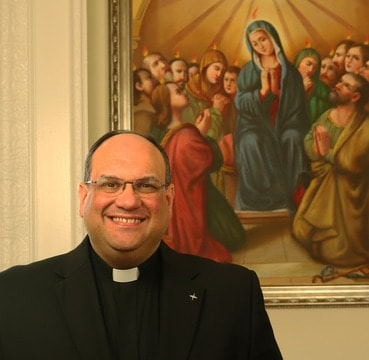
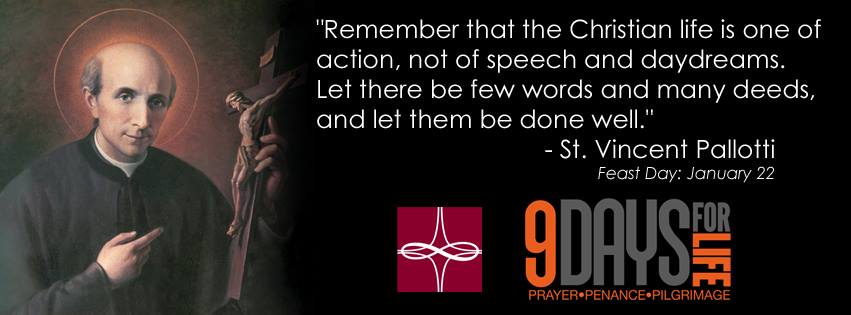
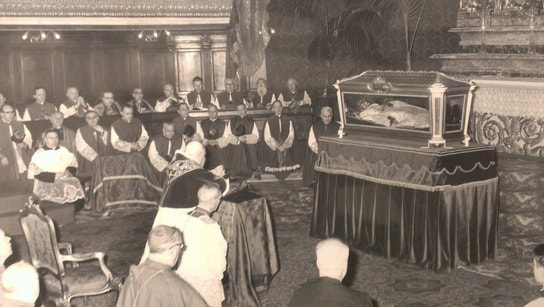
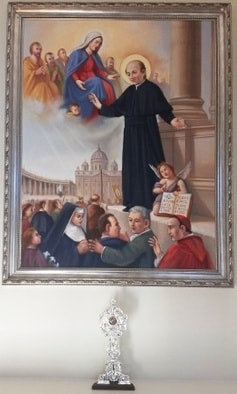


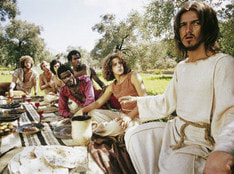
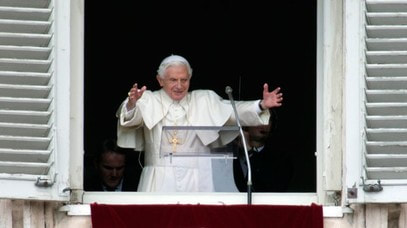
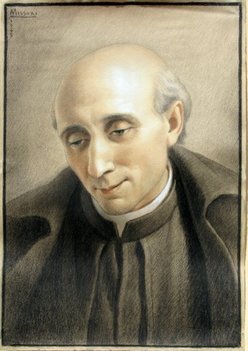
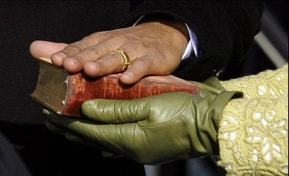
 RSS Feed
RSS Feed